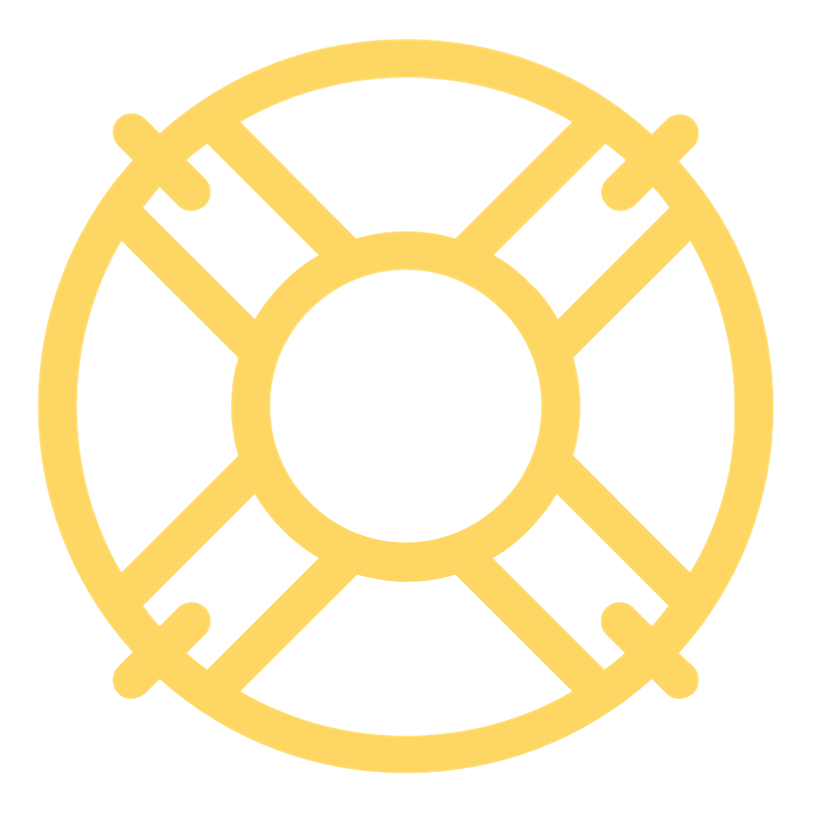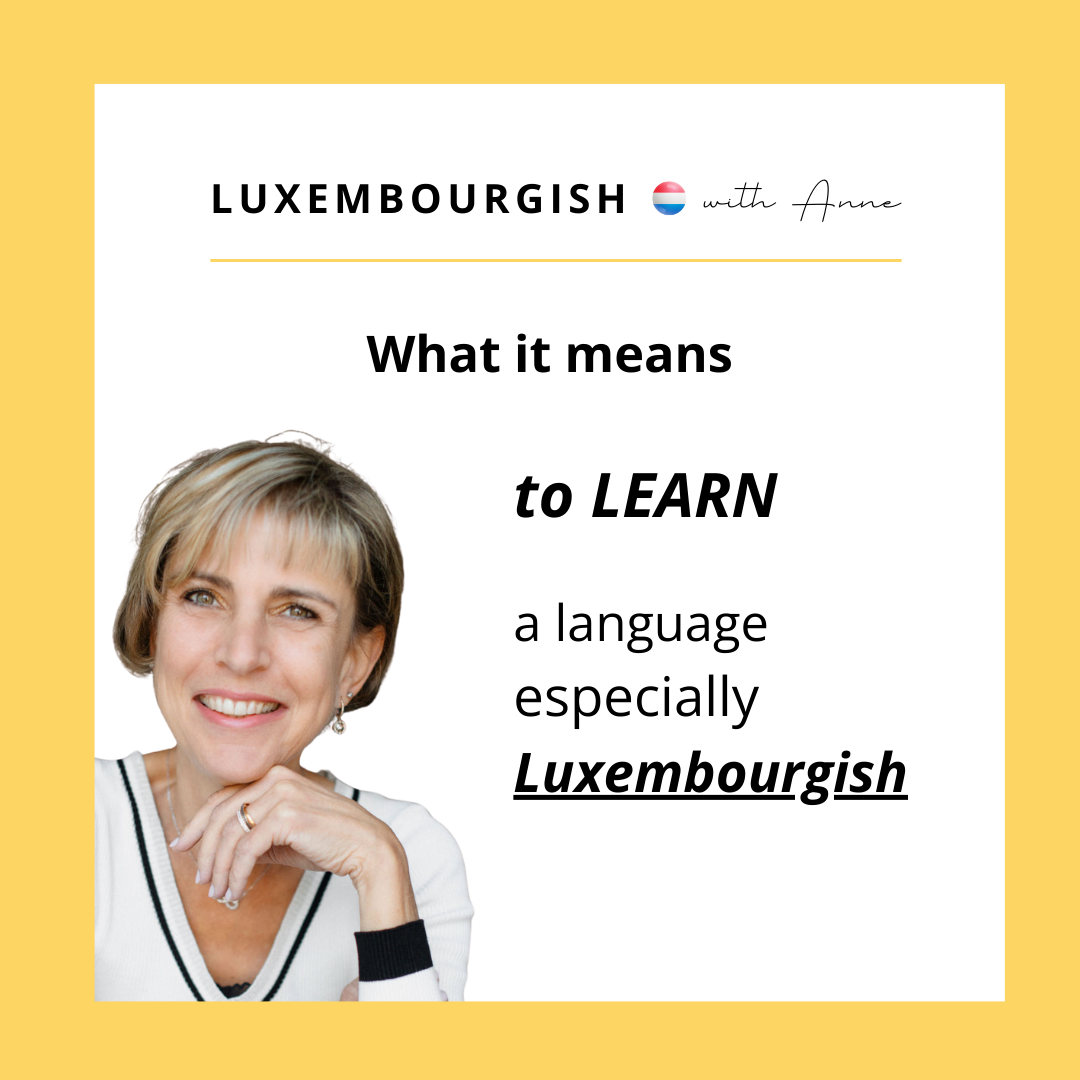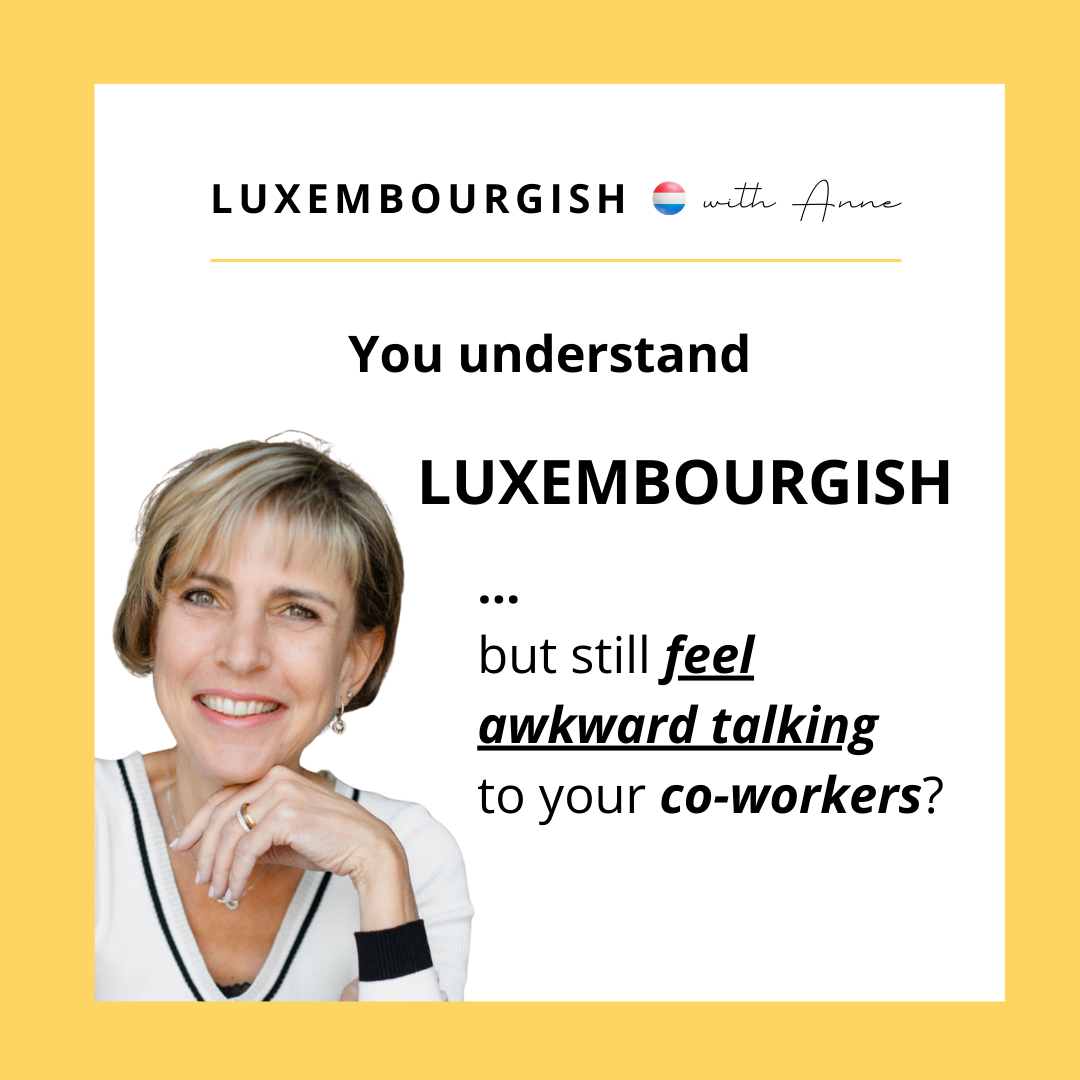Welcome back to part 2 of our series “Talk About Your Life in Luxembourgish!”
Last time, in episode 92, we learned how to talk about your birth and birthdate. By the way do you remember how to say: I was born…? This is Ech sinn ….. gebuer.
Today, we’re moving on to the next big life events: graduation and starting a job.
We’ll talk about how to say that you’ve finished your studies and how to share that you’ve got a job — all in simple Luxembourgish, so you can use it in real conversations.

Schoul / Ausbildung - School / Education
After someone finishes school, they graduate.
Let’s start by learning how to say in Luxembourgish that you graduate from secondary school. Luxembourgish native speakers tend to say that they passed their last year final exams by using the verb packen:
- Ech hu mäi Premièresexamen gepackt. Meaning: I graduated from high school or secondary school.
What is de Premièresexamen? In Luxembourg, students take the “Premièresexamen” at the end of secondary school — it’s the equivalent of final school-leaving exams before university.
Let’s look at the structure of our sentence:
Ech hu mäi Premièresexamen gepackt. I used gepackt which is the past participle of packen as we are talking about something from the past.
And then you can add the year:
- Ech hu mäi Premièresexamen 1999 gepackt. There is no preposition before the year. Ech hu mäi Premièresexamen 1999 gepackt. Remember: you learned in the previous episode how to say I was born in 1999 – Ech sinn 1999 gebuer.
Now if you want to say that you graduated from university we use one of these 2 verbs ofschléissen or absolvéieren. They are interchangeable:
- Ech hunn en Universitéitsstudium 2010 absolvéiert / ofgeschloss. Or you can just say
- Ech hunn d’Uni 2010 ofschloss. I graduated from university in 2010.
Note that most native speakers use the short form of Universitéit: Uni and you’ll hear d’Uni so the uni
And what about if you want to talk about where we graduated from? If you want to name the city you would say:
- Ech hu mäi Studium 2010 op der Uni zu Paräis ofgeschloss. You use the preposition zu before the city: zu Paräis, zu London.

How to use this in a conversation?
We often ask people questions about their graduation, right? Because it’s an important part of people’s lives. So if you meet someone and you know they graduated you might ask them:
Where did you go to school?
- Wou bass du an d’Schoul gaang? (informal) / Wou sidd Dir an d’Schoul gaang? (formal)
- Wou waars du op der Uni?
When did you graduate?
- Wéini hues du d’Uni ofgeschloss? Wéini hutt Dir d’Uni absolvéiert?
And a possible answer: Majo, ech hunn d’Uni 2004 zu Madrid absolvéiert.
Alright, so we graduated school and then we start working:

Aarbecht / eng Aarbecht kréien
Let’s look at some work expressions that are really important to know. And we will start with the word for job. Well good news: in Luxembourgish you can also say Job or better en Job so a Job is en Job – pronounce en – en Job.
Or you can say Aarbecht. This is a feminine noun so: eng Aarbecht and you might sometimes hear people saying eng Schaff
So we have 3 words for a job: en Job, eng Aarbecht an eng Schaff knowing that Job & Aarbecht are the most used.
When you get your first job: in English you use the verb to get a job and in Luxembourgish it is: en Job kréien and as we talk about the past: kréien becomes krut
- Ech krut en Job / eng Aarbecht. – I got a job.
You can also say:
- Ech hunn eng Aarbecht kritt. Kritt is the past participle of kréien.
So both Ech krut en Job and Ech hunn en Job kritt are correct.
Or you use the verb ufänken: to start and in the past ufänken becomes ugefaangen
- Ech hunn 2007 mat schaffen ugefaangen. – I started working in 2007.
Note that many native speakers tend to put mat schaffen after ugefaangen: Ech hunn 2007 ugefaange mat schaffen.

How to use this in a conversation?
So let’s look at some common questions we might ask someone about work:
When did you get your first job?
- Wéini hues du däin 1. Job kritt? Ech hu mäin 1. Job 2010 kritt.
- Wéini hues du ugefaange mat schaffen? Ech hunn 2010 ugefaange mat schaffen.
- Wat bass du vu Beruff? Or Wat méchs du berufflech? – What do you do for a living?
Beruff means profession and that’s the way we ask someone What is your job?. Note that we use the preposition vun here: Wat bass du vu Beruff (informal) and formal is: Wat sidd Dir vu Beruff. Or use the adjective berufflech: Wat maacht Dir berufflech?
Or you can just ask:
- Wat schaffs du? – What do you work (informal)
- Wat schafft Dir? – What do you work (formal)
Here are possible answers:
- Ech sinn Ingenieur, Managerin
- Ech schaffen als Ingenieur
- Ech schaffe säit 4 Joer als Informatiker
Another question: Where do you work
- Wou schaffs du? Ech schaffen säit 4 Joer als Informatiker bei Luxinvest
- Wou schafft Dir? Ech schaffen als Enseignant(e) an engem Lycée an der Stad.




